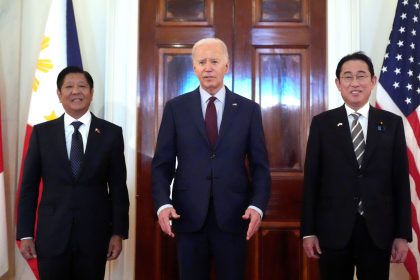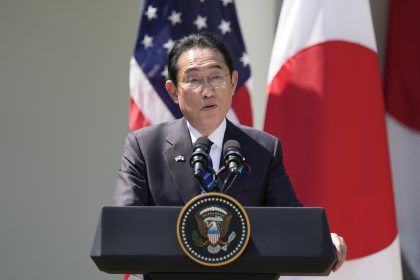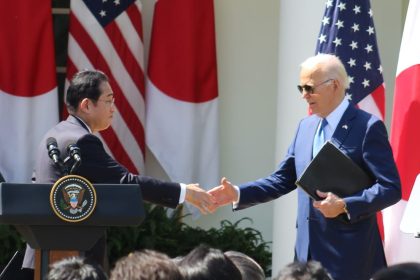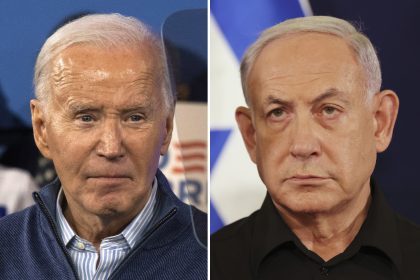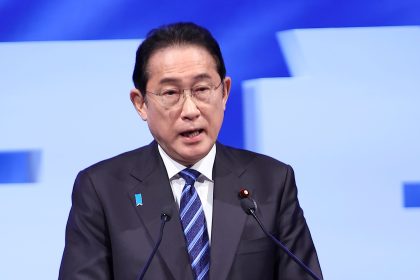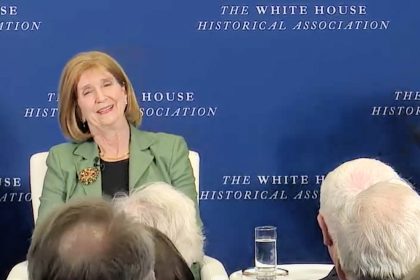White House Welcomes Australian PM Albanese for Talks, Dinner
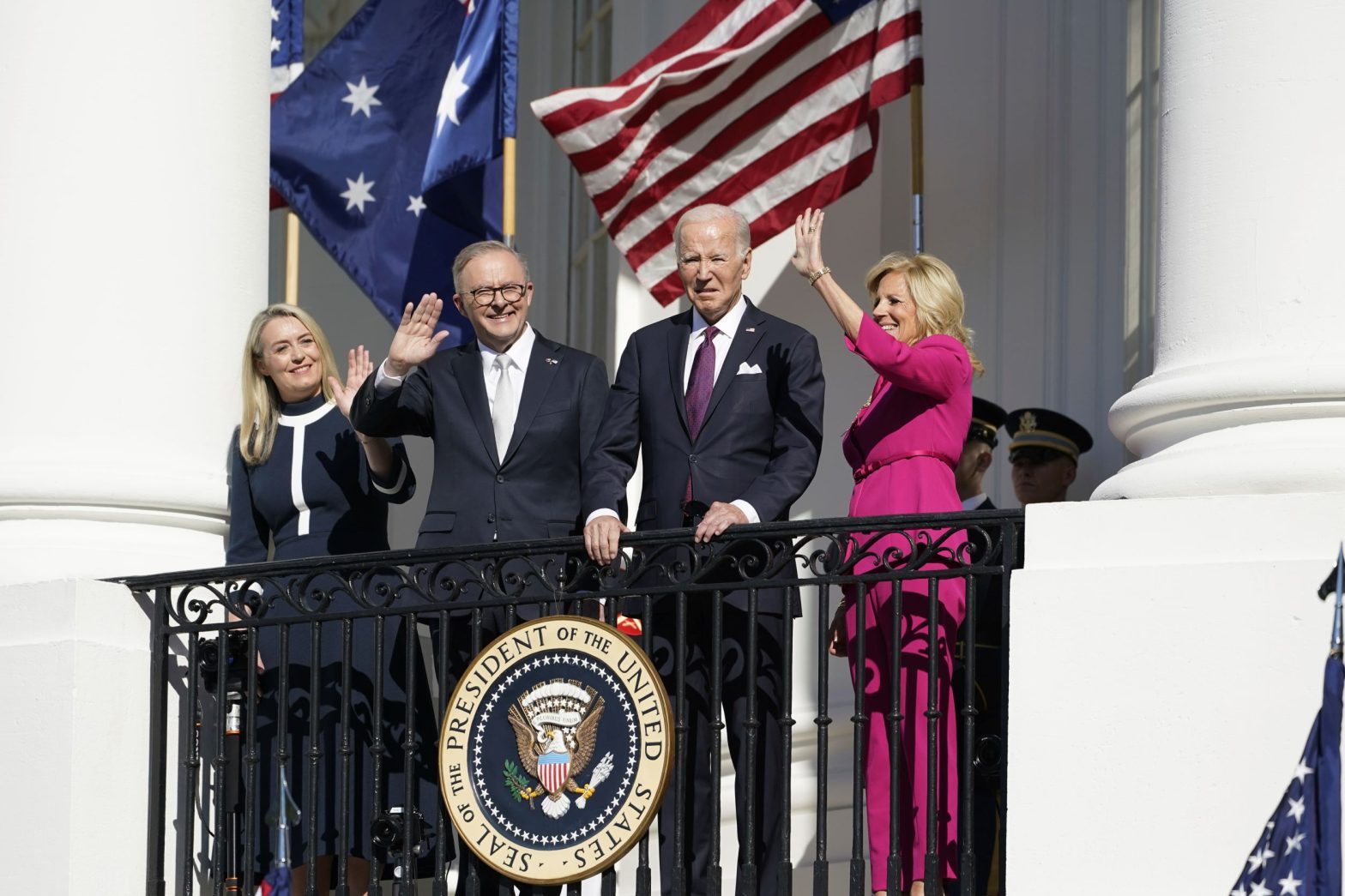
WASHINGTON — As it is whenever a foreign dignitary visits, the curved driveway leading from the north gate to the West Wing was buzzing with activity.
As international television journalists did stand-ups for their Thursday morning news shows in Australia, there being a 15-hour time difference between here and there, many of their American counterparts were scrambling for a quick Wednesday lunch.
“It’s going to be a jam-packed day,” one said as he passed with a brown bag from a local eatery.
“I didn’t know when else I’d get time to eat,” he said as he disappeared toward his desk in the press room.
Five months after abruptly canceling a much-anticipated trip to Australia to address the looming debt crisis in Washington, President Joe Biden was playing host to Prime Minister Anthony Albanese with a nonstop schedule set to extend well into the night.
The visit was intended to underscore the enduring alliance between the United States and Australia and the two nations’ shared commitment to an open, stable and prosperous Indo-Pacific region.
The day’s events started at about 10 a.m. Wednesday with President Biden, First Lady Dr. Jill Biden and thousands of Australian flag-waving guests greeting the arrival of Prime Minister Albanese and his partner, Jodie Haydon, on the South Lawn of the White House.
Large Australian flags adorned the north side of the mansion as well as the Old Executive Office Building, and a 21-gun salute was made in Albanese’s honor.
Later, when the crowd dispersed, so many people flooded onto 15th NW that tourists standing near the Willard Hotel wondered whether they were witnessing a parade of some sort.
By then, the president and prime minister were sitting down to a bilateral meeting in the Oval Office, an event followed by a joint press conference in the Rose Garden.
Standing alongside Albanese at the podium, while a radiant and warm-for-the-season sun shone down on them, Biden said, “Australia and America stand ready to do the hard work, the historic work, to tackle the challenges we face.”
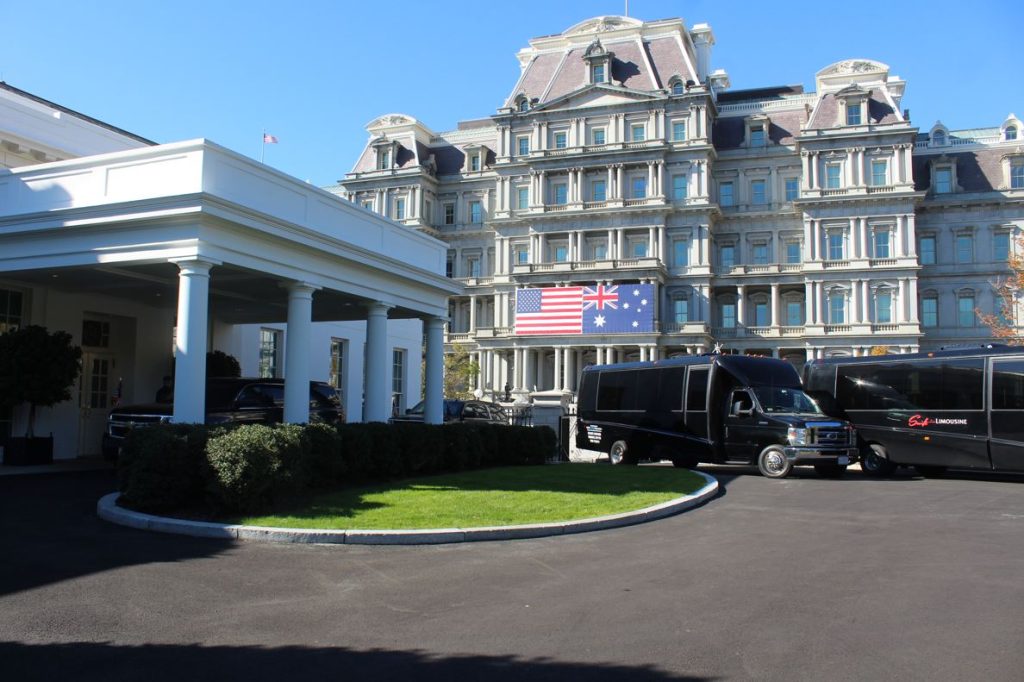
Both leaders stressed that they were of like mind when it came to responding to acts of aggression, mentioning Russia and Hamas.
They also announced a new agreement, an “innovation alliance,” through which the two countries will work together in the area of science and emerging technologies.
“These initiatives will augment and complement our robust economic cooperation and trade; our foundational security and defense ties; our newly inaugurated cooperation on climate, critical minerals, and clean energy; and our enduring people-to-people connections,” Biden said.
Albanese described the agreement as adding a “third tier” to the U.S.-Australia alliance, to go along with the two countries’ long-standing economic and defense relationship.
If there was an area where the two leaders seemed to be of different minds, it was related to how to deal with the growing aggressiveness of China, particularly when it comes to navigation in the South China Sea.
Just last week, Chinese vessels blocked and rammed ships belonging to the Philippines that were traveling through the region.
“I want to be very clear,” Biden said. “The United States’ defense commitment to the Philippines is ironclad.
“Any attack on the Filipino aircraft, vessels or armed forces will invoke our mutual defense treaty with the Philippines.”
For his part, Albanese acknowledged the “strategic competition” with China in the Indo-Pacific region, calling it a “fact we are living with.”
But he also said Australia is trying to take a different, less confrontational approach to dealing with the situation.
“The principle that I bring to [the situation] is: cooperate where we can, disagree where we must, but engage in our national interest,” he said.
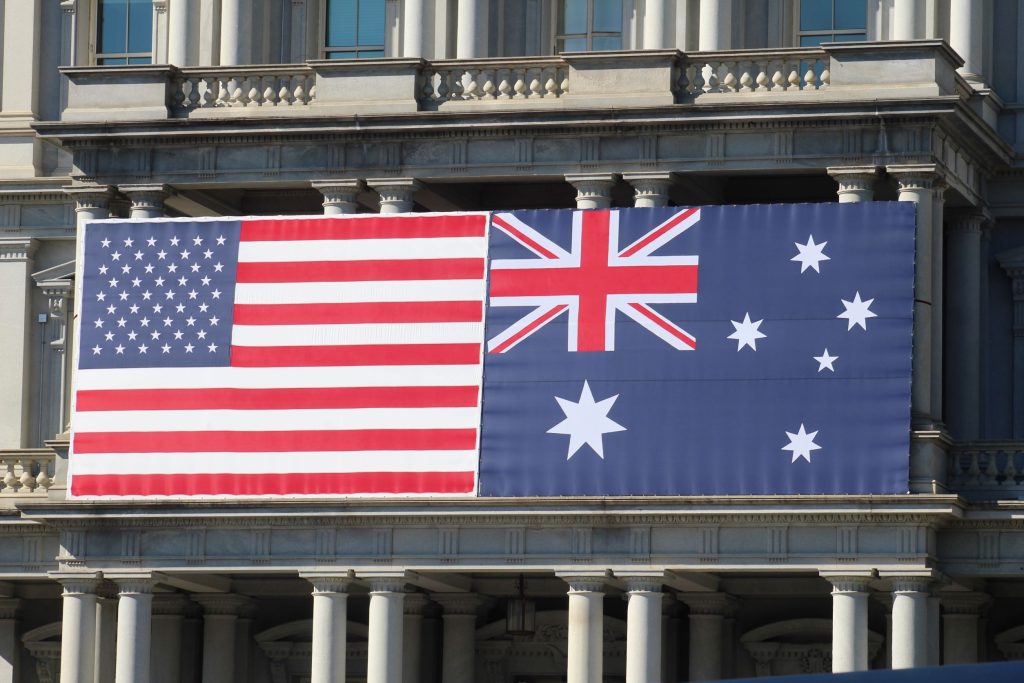
“It is in Australia’s interest, as well as China’s, and I believe the world’s, for us to have a relationship where there is dialogue,” he added.
Albanese mentioned that he’s been invited to China and plans to be there later this month around the 50th anniversary of former Australian Prime Minister Gough Whitlam’s visit to Beijing in 1973.
“Dialogue is always a good thing,” the prime minister said. “Because through dialogue comes understanding and comes a diffusion of tension.
“We want a peaceful and secure region, but we want one as well that’s based on the rule of law and where national sovereignty is respected,” he said.
The day of diplomacy ended with a lavish state dinner for about 300 invited guests in a temporary outdoor pavilion that had been built on the South Lawn.
Albanese and Haydon arrived at the north portico of the White House in a chauffeur-driven limousine shortly before 7 p.m., where they were greeted by the president, who was wearing a black suit and tie, and the first lady, who wore a silver and blush gown by Lebanese American designer Reem Acra embroidered with leaf motifs.
Albanese was also in black tie, while Haydon wore a draped tulle gown by Australian label Paolo Sebastian.
Her dress was embroidered with the native flora and fauna of Australia.
“We both did very well,” Biden said with a broad smile before the couples walked inside for a photo op at the White House’s grand staircase.
Katie Button, a James Beard Award-nominated chef who owns the restaurant Cúrate in Asheville, North Carolina, worked with the first lady and White House chefs to develop a menu that reflected “the bounty of the fall season” in the United States.
The menu, shared by the White House days before the event, featured butternut squash soup, root vegetables, sarsaparilla-braised short ribs, hazelnut mousse, and, of course, ice cream — the president’s favorite dessert.
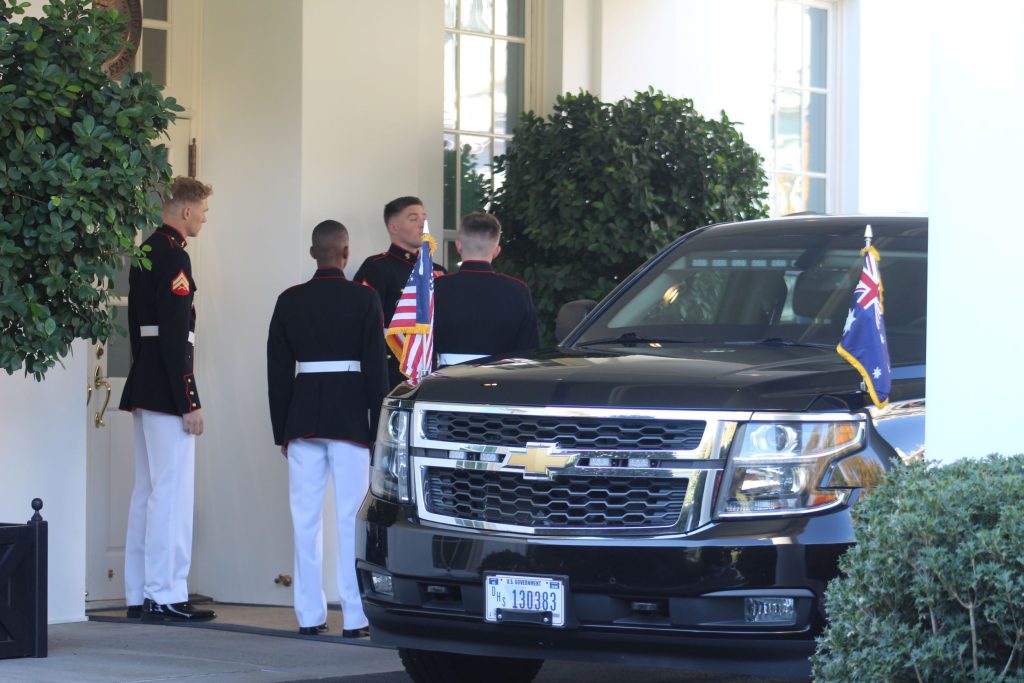
Before the diner was served, Albanese rose to make a toast to his hosts, saying the event filled him with one regret.
“I’m not quite sure how I top this for date night with Jodie, at anytime, anywhere in the future,” he said.
Turning to his companion, he added, “It’s all downhill from here, my darling.”
Albanese then observed that “we live in a world that keeps changing, yet one thing that keeps the ground firm beneath us is the great constant that is the American spirit.”
“It is a spirit Australians identify with,” he continued. “With a small population but big imagination, we punch above our weight — all the while drawing inspiration from our friends across the Pacific. We stand as close as we have ever been.”
Biden described Albanese as a good friend, and Australia as a nation prepared to “face tough challenges and with the courage to fight for a better future.”
He continued: “A great deal of the history of our world will be written in the Indo-Pacific in the coming years.
“Australia and the United States must write that story together, to advance freedom, security and prosperity for all,” the president said.
Raising his glass, he added, “To our partnership, to our mateship and the future we will create together. Cheers!”
While this, the fourth state dinner of Biden’s presidency, was certainly lavish, it was purposefully toned down as a result of the ongoing war in Ukraine and an escalating conflict in the Middle East.
The most obvious sign of this was the cancellation, two days ago, of a planned performance by the 1980s new wave band the B-52s.
The first lady told reporters that such a rousing performance would be inappropriate at a time when “so many are facing sorrow and pain.”
Instead, the entertainment for the night was instrumental music provided by the Marine band and the Army and Air Force Strolling Strings.
Members of the B-52s attended the dinner as guests.
Dan can be reached at [email protected] and at https://twitter.com/DanMcCue


















